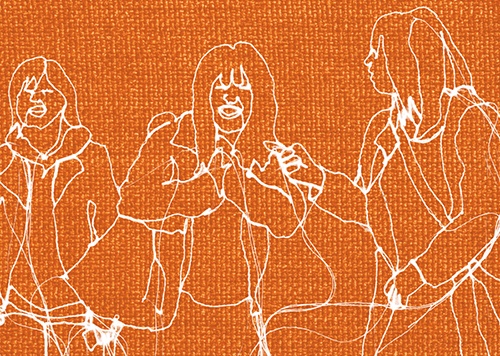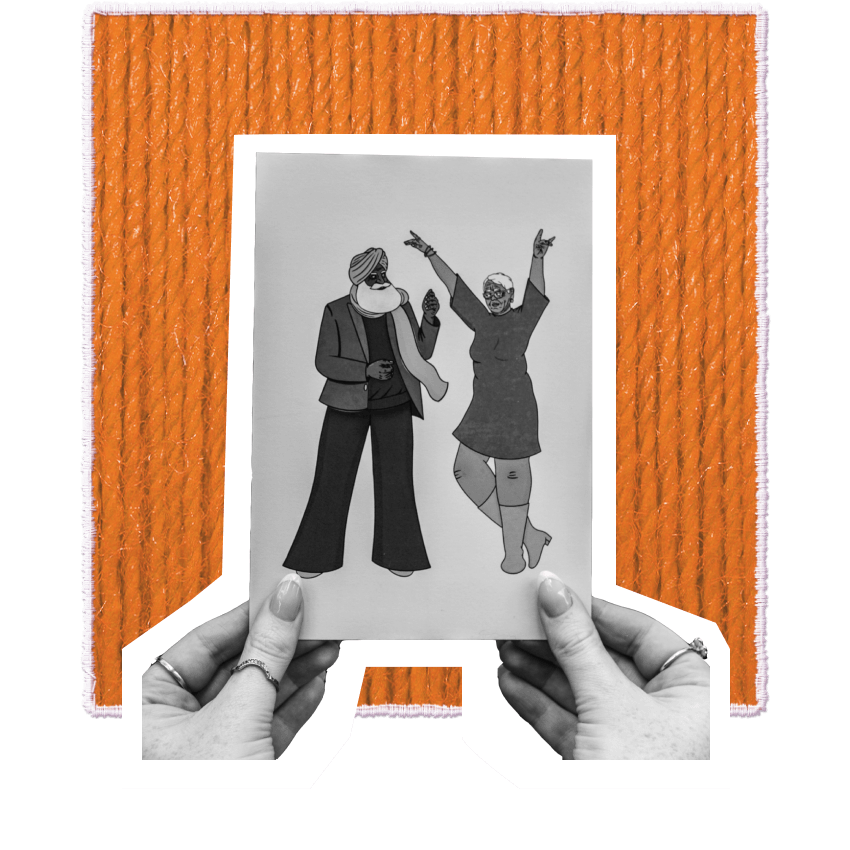
United Kingdom
Sexual health of older adults emerging from the shadows
Some women arrived alone. Some came with friends. Some were as old as 70. All came for the Age of Love “café” at a community centre in Northampton, England, one Saturday afternoon in August 2023.
Inside, organizers played upbeat music while the women waited for the day’s programme to begin. The curtains were drawn for privacy. Some women chatted with friends while others sat silently.
“At first, everyone was a little nervous, given that for the next three hours, the conversations would be about sex and health,” says Audrey Tang, a psychologist, educator and co-organizer of the event. “But almost immediately, people started opening up – and having fun,” Ms. Tang adds.
The event was one of a series in which older adults have an opportunity to learn in a “convivial and confidential” environment about sexual health and get answers to questions about their bodies and sexuality as they age, according to University of Sheffield psychology professor Sharron Hinchliff, who created the Age of Love series in 2019.
She says the events help fill the information void often encountered by older adults when they want to find out about matters such as menopause, erectile dysfunction, or the impacts of illness and medications on libidos.
“We keep hearing from older adults that there is no easy way to find trustworthy information,” Prof. Hinchliff says. Part of the problem is that there’s an assumption that older adults aren’t sexual and therefore don’t need information, she explains.
“But we know that many older adults are sexually active,” she adds. Many others would like to be but are not: One study in the United Kingdom in 2019 found that about one in four men and one in six women between the ages of 55 and 74 have a health condition or take a medication affecting their sex lives (Erens and others, 2019). According to the Healthy Lifespan Institute at the University of Sheffield, the problem is even worse for the one in two people aged 65 or older living with two or more chronic diseases.
“There is a large unmet need” for information and services among the United Kingdom’s older adults, Prof.Hinchliff says. And that need is likely to grow as people are living longer. Life expectancy in the country is about 80 years, and today about one in four people is aged 60 or older (UN DESA, 2022a).
Older adults tell Prof. Hinchliff their sexual health needs and concerns are often neglected or ignored by doctors because of their age. “This ranged from not being told when it was safe to resume sexual intercourse after a hysterectomy to being advised that painful sex was ‘due to age’ but without being offered any help or advice,” Prof. Hinchliff says.
Anecdotal and scientific evidence show that the sexual rights of older adults are rarely met. In response, Prof. Hinchliff, along with University of Sheffield research associate Stephanie Ejegi-Memeh and Age-Friendly Sheffield learning officer Gilli Cliff, devised the United Kingdom’s first Sexual Rights Charter for Older Adults, which aims “to ensure that people are treated with dignity and respect, and without discrimination, as they age when it comes to their sexuality”.
Denying the sexual rights of older people can take many forms, ranging from being prevented from forming intimate relationships in care homes to being excluded from sexual health and education campaigns, including ones aimed at prevention and treatment of sexually transmitted infections.
In 2019, Age UK showed that between 2014 and 2018 new diagnoses of sexually transmitted infections fell by more than 7 per cent among men aged 20 to 24, yet they rose by nearly 14 per cent among men aged 45 to 64, and by 23 per cent among men and women aged 65 or older during that same period (Age UK, 2019). The trend reflects age-related inequalities in sexual health services and information in the United Kingdom, Prof. Hinchliff says.
Meanwhile, older adults are less likely than younger people to report sexual assault because of concerns about not being believed because they do not fit the “image of the rape victim”, she says. And they may delay or avoid seeking help for sexual matters because they are painfully aware of the prevailing view that older people should not or do not have sex.
All these challenges are compounded for older adults who are gay, lesbian or transgender, are from racial or ethnic minorities, come from more conservative backgrounds or are from poorer households, Prof. Hinchliff says.
The Sexual Rights Charter is meant to help health-care providers, social workers, community groups, the volunteer workforce and policymakers better understand and respond to the needs of older adults. It is meant to “underpin” every initiative aimed at making Sheffield a great place for people to grow old.
“The idea for the Charter was born out of frustration” because many issues can be easily addressed by asking patients simple questions about, for example, how a medication might be affecting their sex lives, Prof. Hinchliff explains. The ideas within the charter are now being translated into action: With colleagues at the University of Sheffield, Prof. Hinchliff created AgeSexandYou.com, a website with straightforward information about sexual health and sexuality for older women and men.
In 2018, the World Health Organization welcomed Age-Friendly Sheffield, a partnership of organizations and individuals, into the global Age-friendly Cities and Communities network. As part of this network, Age-Friendly Sheffield is striving to create age-friendly physical and social environments. The café events are part of this effort. The first events were aimed at women, but one in December 2023, “Breaking the Silence,” targeted men and focused on their mental health and well-being, including sexual well-being. “Men want to talk about these things as well,” Prof. Hinchliff says, “but we often don’t give them the chance or the right environment to do so.”
Artwork
Textiles blur the boundary between art and function, practicality and beauty. Women’s movements have long used textiles to draw attention to a range of issues – from body positivity to reproductive justice and systemic racism. Contemporary artists and women-led textile collectives continue this tradition by producing artwork which reflects their local environments and traditions. As it has for thousands of years, textile art continues to offer women around the world the means to connect with previous and future generations of women in their families and communities.
We would like to thank the following textile artists who contributed to the artwork for this report:
-
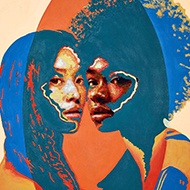
Nneka Jones
-
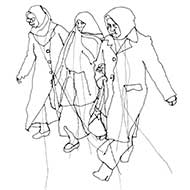
Rosie James
-
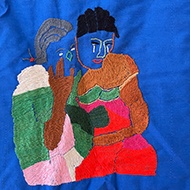
Bayombe Endani, represented by the Advocacy Project
-
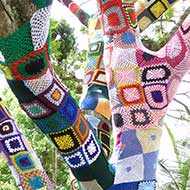
Woza Moya
-

The Tally Assuit Women’s Collective, represented by the International Folk Art Market
-

Pankaja Sethi



